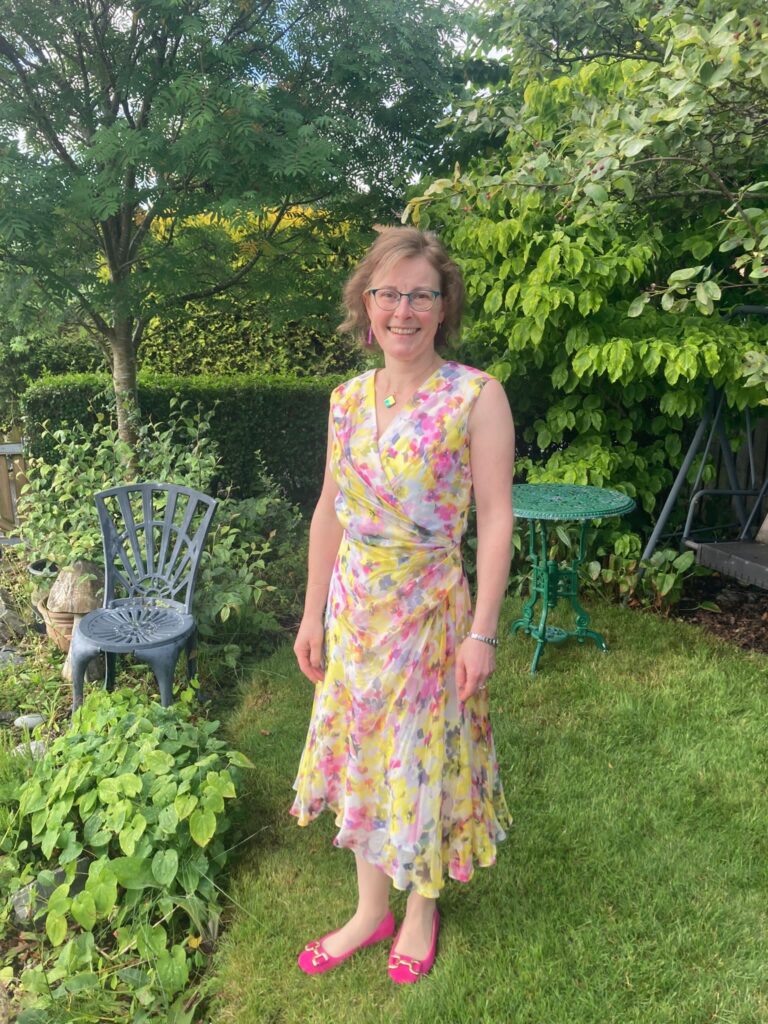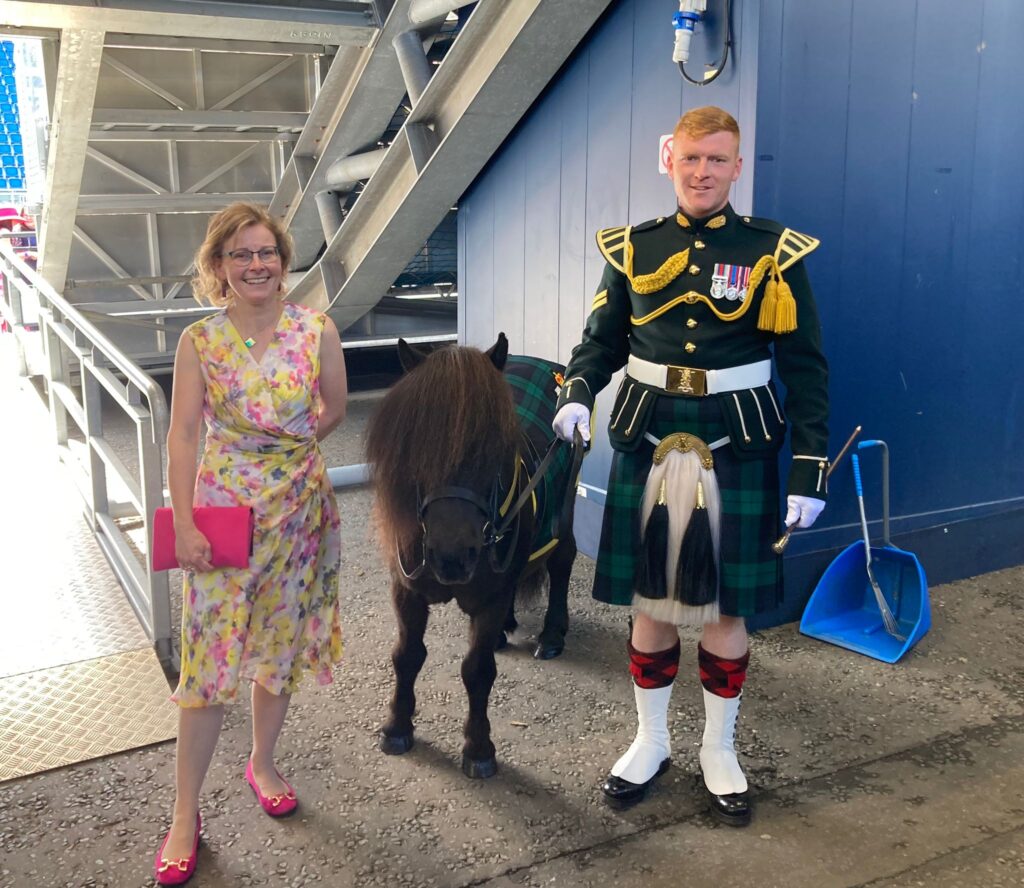Our volunteer Clare was chosen to represent RNID in the People’s Procession in Edinburgh in July to celebrate the King’s coronation year. Here she reflects on her experience.
“Being part of the People’s Procession was an amazing experience, from the weather clearing to be a dry, sunny day to the excitement of the long walk towards the Castle Esplanade, seeing behind-the-scenes of the preparations for the event – security, military personnel and horses! To gather amongst people you wouldn’t normally be able to be with was an event in itself.
“Then navigating Edinburgh’s cobbles and proceeding down to St Giles, when people started to clap and wave to us, it gave us a feeling of pride; being alongside representatives of so many supportive communities across Scotland.

“Filing into the Cathedral and sitting with the twenty three page order of service listing all the Honours and Procession participants, meant we had a written record of recognition. British Sign Language interpreters were inside the Cathedral making the service as accessible as possible and helped me practice my BSL level 1 on the side. It was a privilege to be recognised and asked to attend for a rare insider’s look at a once-in-a-lifetime opportunity.”
“Volunteering has helped me feel more involved”
About volunteering, Clare said: “The work of RNID is more important than ever, with ever more people being diagnosed with hearing loss. Volunteering has helped me feel more involved – to help catch awareness early and provide positive action to people will greatly help everyone in the future, both socially and from a mental heath perspective.
“Technology can help too and with captions and subtitling awareness for everyone, my hope is that I can help change the perception that hearing loss has to be hidden. Our local NHS Audiology is at full stretch and after helping a local care home resident change her tubing I realised that there are many in the community needing help. I very much look forward to helping provide that with support from RNID.”

Clare’s hearing loss story
“I first became aware of my hearing loss in my last couple of years at school in the late 1980s. I had a brain tumour removed at aged 5 years old, but no link was made at the time. I’ve gradually received stronger NHS hearing aids and I am now profoundly deaf in my right ear with moderate to severe high frequency loss in my left – where all the speech sounds are.
“I started to use a bi-cross system when they were developed ten or so years ago; a microphone on my deaf side picks up sound to transfer to my left hearing aid. Modern technology in scanning just diagnosed my hearing loss four years ago – it’s due to Superficial Siderosis, a rarely diagnosed condition due to a brain bleed within the cerebral spinal fluid, as a result of the tumour removal. Over time the toxic iron in the blood settles on exposed areas such as the hearing nerve (8th cranial nerve) and permanently damages it.
“So now, I cannot locate sound but act like a meerkat when someone shouts my name across a room! The bi-cross system has been great, because I know if someone to my right is speaking to me then I know I am not ignoring them and vice versa!”